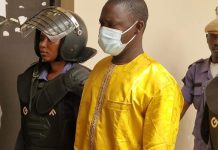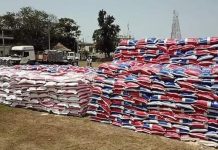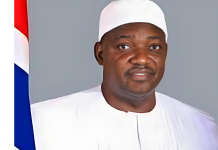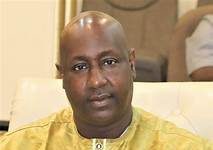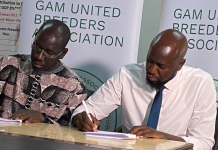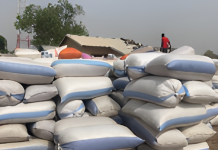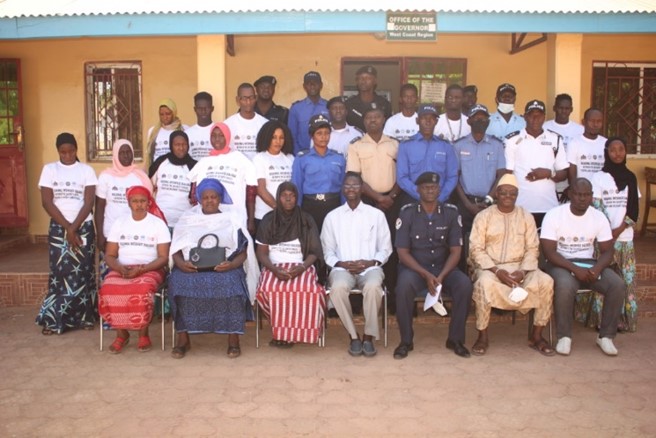By: Aja Musu Bah-Daffeh
The National Council for Civic Education (NCCE) is currently engaging Security personnel, youth organisations, CSO’s and other relevant stakeholders on how to maintain a peaceful and violent free country to foster unity amongst these groups in the post-election period.
The regional interface dialogue started on Sunday 19 to 28 December, 2021.
The initiative was supported by UNFPA under the UN PeaceBuilding Fund in collaboration with the NYC and NCCE on a regional interface dialogue. The council aims to reach to all administrative regions to provide a platform for stakeholders to discuss security and peace of post-election, as well as build capacities required to address emerging conflict threats.
This is aimed at enhancing a mutual understanding and foster collaboration between security forces, youths, political actors and other stakeholders in order to promote the fundamental tool of democracy, respect for rule of law, fundamental rights and freedoms and the maintenance of peace and stability.
Ansumana Ceesay, the Senior Program Officer of NCCE, expressed delight over the interface dialogue between stakeholders held under the theme: “Building cordial relations among stakeholders to preserve national peace and security, post 2021 presidential election”.
Mr. Ceesay said the Gambia is still at a crossroads after nearly five years since the removal of a dictatorial rule. He said in the build-up to the concluded 4th December presidential election, there was a profound fear that the country could slope into conflict due to the deep polarisation and public speaking exhibited by the contesting candidates and their supporters both on media and on the campaign trail.
However, he said the Gambia came out triumphant by going through the election in a calm and peaceful manner without skirmishes and widespread polarisation.
“This event will create the platform for stakeholders such as the Security, political actors, CSOs, CBOs, Young people, women and Media personnel, to freely discuss peace and security challenges relating to the post-election, as well as the capacities required to address the current and emerging challenges that could jeopardise national security and proffer recommendations for the way forward,” NCCE senior program officer asserted.
Ceesay made commitments that NCCE would continue facilitating dialogues of this nature, especially during this crucial moment in the history of the country. He noted that they will build and consolidate a mature political culture in which all citizens regardless of gender and age, fully exercise their civic rights and responsibilities.
Ousman Bah, the Program Officer of NCCE, who engaged the participants on peacebuilding at the Brikama Governor’s Office, said in enhancing peacebuilding in the country, the government, CSOs, national and international organisations, women and youths, council of elders and traditional leaders should all stand their ground in making sure that there is peaceful co-existence in the country.
“Peacebuilding has diverse approaches and methods and it can be achieved through using different forms of diplomacy and dialogue to strengthen democratic values and inclusive politics. It also involves improving systems of justice administration, that is to have an anti-corruption commission, constitutional reforms, access to justice, truth commission and so on,” he narrated.
Yusupha Bojang, the program manager for NCCE, stated that every citizen should know their respective rights, their responsibilities as well as their limitations. He said they should equally know the mandates of the security personnel in order for them to have peaceful co-existence amongst them and to maintain the peace in the country.
Meanwhile, the participants took turns to applaud the efforts NCCE is playing in the country in maintaining peace and also challenged everyone to be a peace ambassador in their respective communities.
Ethiopia Insight reporter Ermias Tasfaye detained since November
Members of the federal police patrol in Oromia, Ethiopia, on June 15, 2021. Authorities in Oromia arrested journalist Ermias Tesfaye in November. (Reuters/Tiksa Negeri)
Nairobi, December 23, 2021— Ethiopian authorities should immediately and unconditionally release journalist Ermias Tasfaye and all other members of the press detained for their work, the Committee to Protect Journalists said today.
Ermias’ November arrest was made public in a statement by his employer on December 14 and follows the Ethiopian government’s crackdown on journalists following its November 2 declaration of a state of emergency amid the country’s year-long civil war.
CPJ has documented the arrests of at least 14 other journalists during this period, most of whom have not been brought to court.
“Ermias Tasfaye and all the other journalists arrested in Ethiopia belong in the newsroom, keeping the public informed, and not languishing behind bars,” said CPJ Sub-Saharan Africa Representative Muthoki Mumo. “Authorities should immediately release all journalists detained in Ethiopia for their work, stop using the state of emergency as an excuse to arrest members of the media, and allow the press to report the ongoing war without intimidation.”
On November 3, police arrested Ermias at his office in Burayu, a town in Ethiopia’s Oromia region, and have since detained him without filing charges or disclosing any allegations against him, according to a statement posted on Twitter by his employer, the privately owned news and commentary website Ethiopia Insight, as well as a person familiar with the case who spoke to CPJ on condition of anonymity, citing fear of reprisal.
The Ethiopia Insight statement said that the outlet believed Ermias was detained at the Wereda One Police Station in Burayu under the terms country’s state of emergency declaration, which was issued one day before his arrest.
The person familiar with the case said they believed Ermias was targeted for arrest due to his journalistic work. Ermias was not included on CPJ’s 2021 census of journalists imprisoned for their work as of December 1, as his case had not been made public at the time.
Ermias was previously detained by police in Burayu for several hours on June 17, 2021, though he was not charged with a crime and he was not told why he had been detained, according to a brief shared with CPJ by Ethiopia Insight.
Ermias had reported on Ethiopia’s elections, in which he highlighted “political suppression and asymmetrical application of electoral codes,” and critically reviewed Prime Minister Abiy Ahmed’s political record in Oromia.
When CPJ called Oromia regional state police commissioner Arasa Merdasa for comment, he said he was not aware of Ermias’ detention and promised to investigate the matter. He did not answer CPJ’s subsequent calls or immediately respond to an additional request for comment sent via text message.
When CPJ repeatedly called federal police spokesperson Jeylan Abdi in November and early December, he said that journalists detained in Ethiopia were held for breaching the country’s laws, and not for their work. Jeylan did not immediately respond a request for comment on Ermias’ case sent via messaging app.


